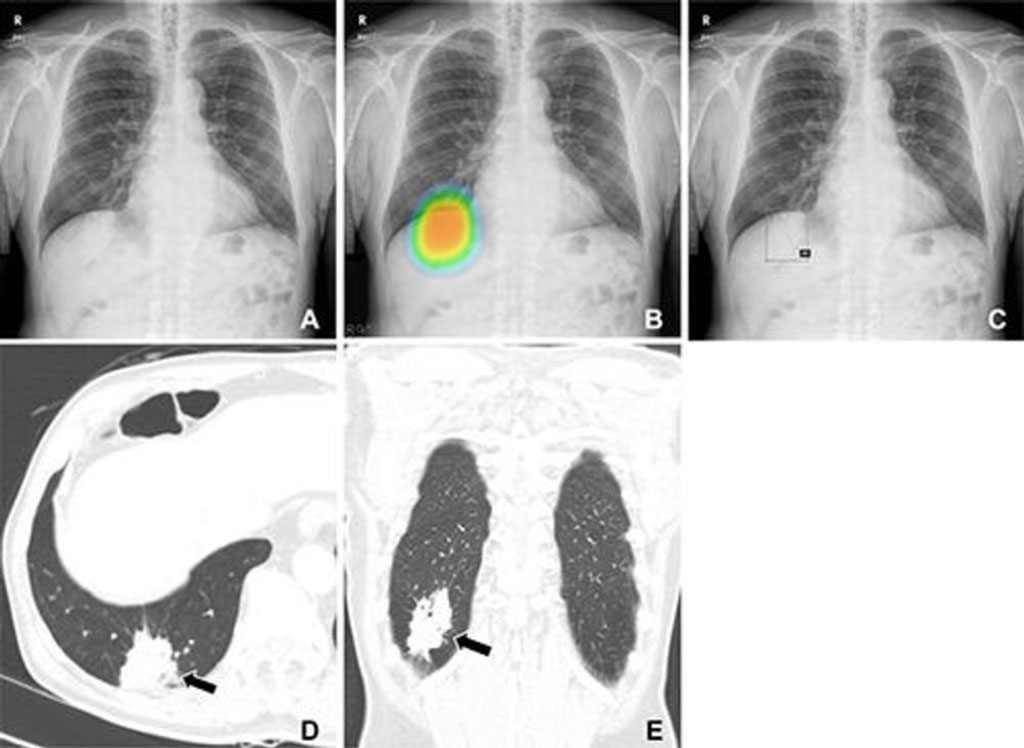High Accuracy AI Improves Radiologist Performance in Detecting Lung Cancers on Chest X-Rays
Posted on 28 Jun 2023
While the progression of artificial intelligence (AI) in image diagnosis within the medical field has been swift, the factors that impact radiologists' diagnostic conclusions in AI-assisted image interpretation have not been sufficiently explored. A new study delved into these influencing factors, particularly in relation to the detection of malignant lung nodules during AI-aided reading of chest X-rays. The study found that an AI algorithm with high diagnostic accuracy can enhance radiologist performance in identifying lung cancers on chest X-rays and increase human acceptance of AI recommendations.
In the retrospective study conducted by researchers at Seoul National University (Seoul, Korea), 30 readers, including 20 experienced thoracic radiologists and 10 radiology residents, evaluated 120 chest X-rays without AI assistance. These X-rays included 60 images from lung cancer patients and 60 control images. For the second session, the same images were reevaluated with the assistance of either a high- or low-accuracy AI. The readers were not informed that two different AI algorithms were used in the study. The application of a high-accuracy AI demonstrated a more significant enhancement in the readers' detection performance compared to a low-accuracy AI. Moreover, high-accuracy AI led to more frequent alterations in reader determinations, a phenomenon known as susceptibility. In comparison to the initial reading session, readers aided by the high-diagnostic-accuracy AI in the second session exhibited a higher per-lesion sensitivity (0.63 versus 0.53) and specificity (0.94 versus 0.88). Conversely, readers who used low-diagnostic-accuracy AI did not demonstrate any improvement between the two reading sessions in terms of these metrics.

The findings highlight the importance of employing high-performance AI in diagnostics. However, the researchers have pointed out that the definition of "high diagnostic performance AI" can be context-specific, varying based on the task and the clinical setting. For instance, an AI model capable of detecting all abnormalities on chest X-rays may seem ideal, but it may not be valuable in reducing the workload in mass screenings for pulmonary tuberculosis. The researchers aim to extend their investigation of human-AI collaboration to other abnormalities in chest X-rays and CT images in the future.
"Our study suggests that AI can help radiologists, but only when the AI's diagnostic performance meets or exceeds that of the human reader," said study lead author Chang Min Park, M.D., Ph.D., from the Department of Radiology and Institute of Radiation Medicine at Seoul National University College of Medicine. "Therefore, our study suggests that clinically appropriate use of AI requires both the development of high-performance AI models for given tasks and considerations about the relevant clinical setting to which that AI will be applied."
Related Links:
Seoul National University














